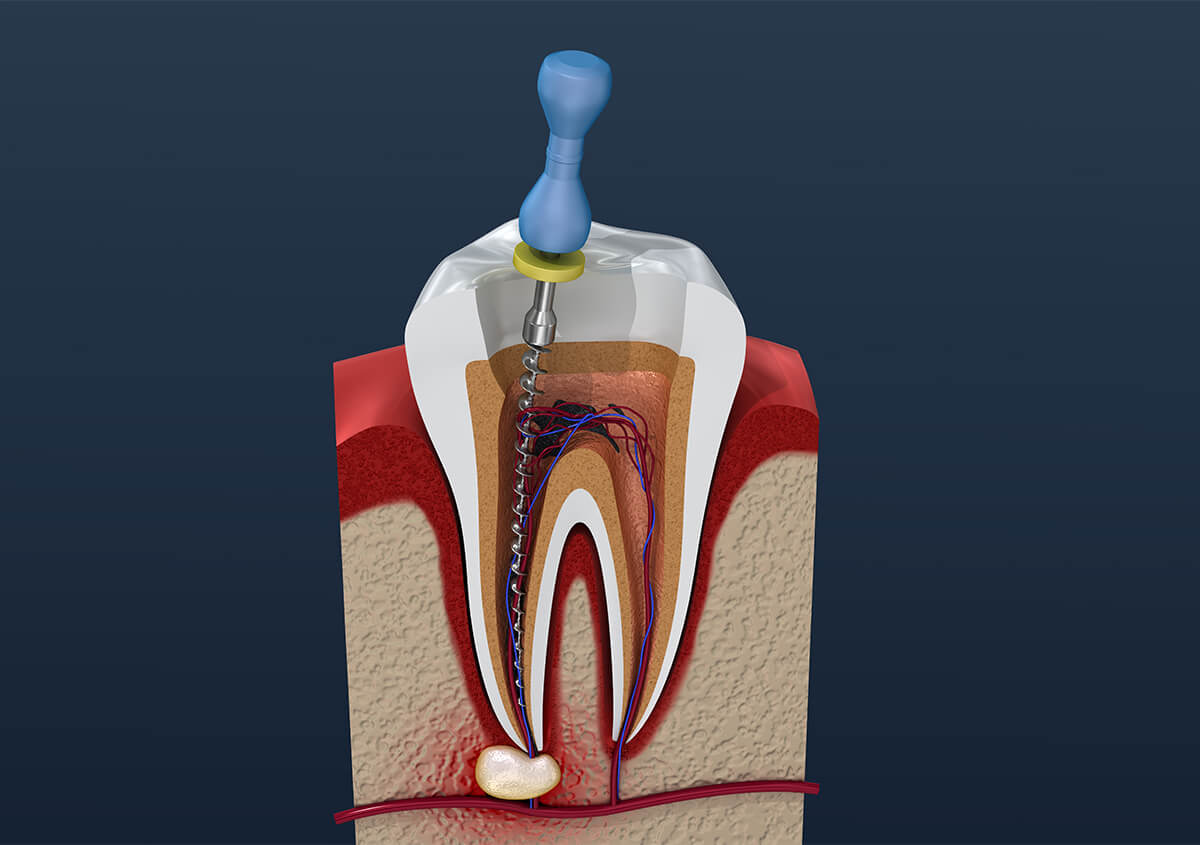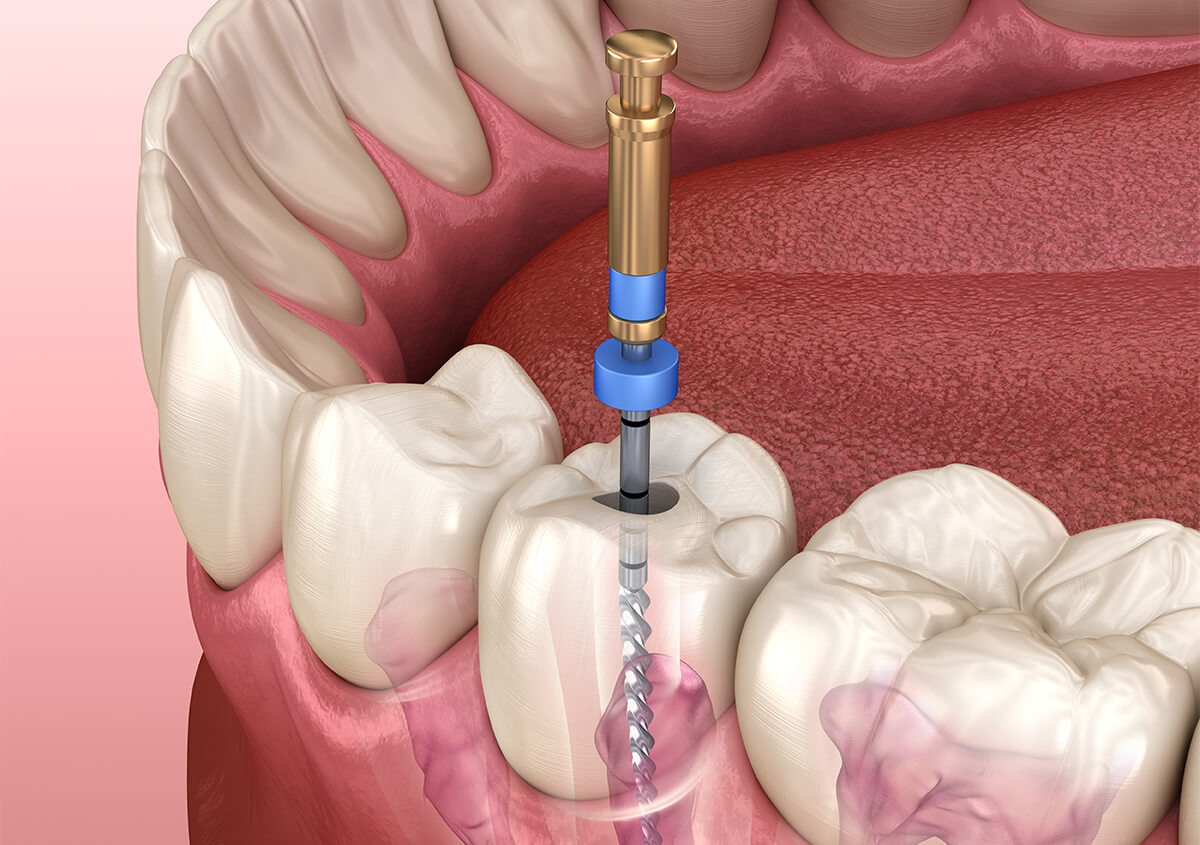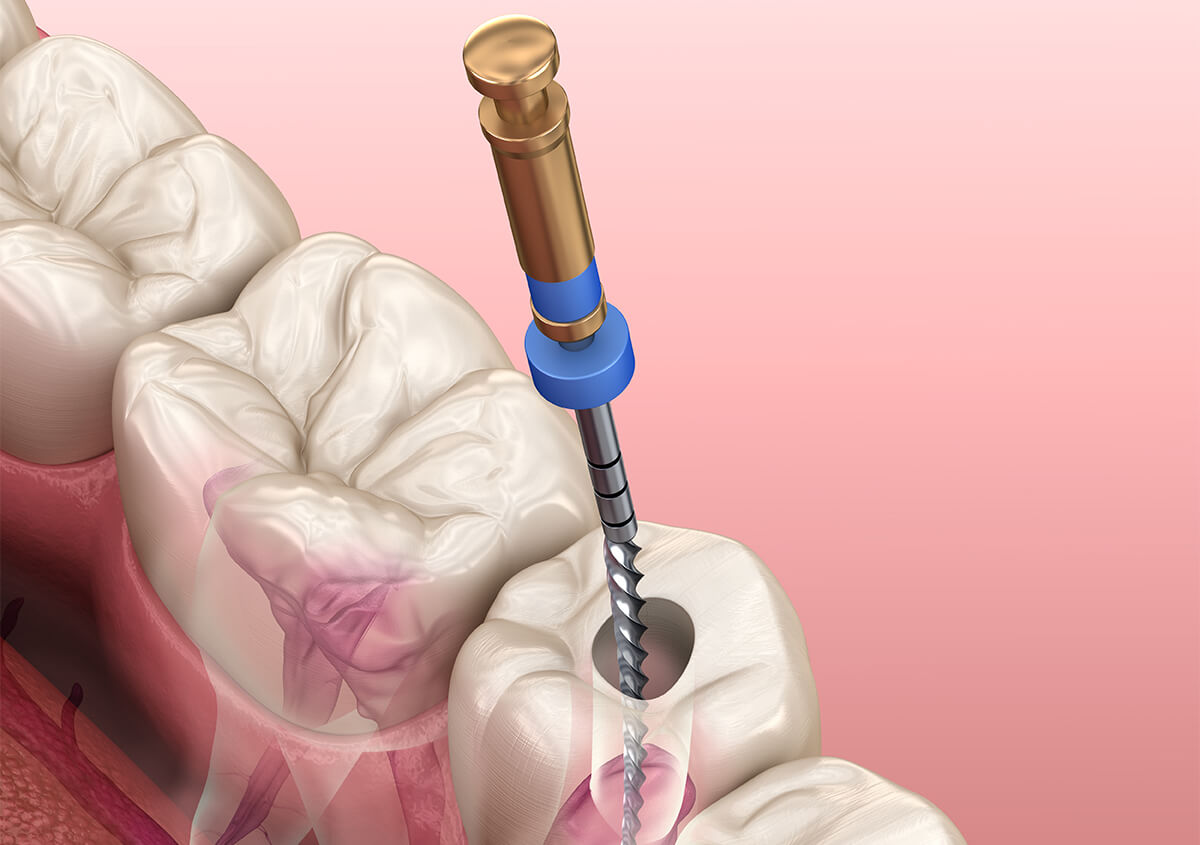ROOT CANAL THERAPY IN LONGMONT
When you first discover you may be in need of root canal therapy, or “endodontic treatment”, you may have a few questions. Root canal therapy is a procedure that strives to repair and save a badly infected tooth. There are multiple reasons why someone may find themselves needing root canal therapy, such as deep decay or a crack/ chip in the tooth. The best way to prevent root canal therapy is by scheduling regular visits with your Longmont dentist to detect dental issues early on and avoid requiring this procedure altogether.
What to Expect During a Root Canal Treatment
If you are experiencing extreme pain in one of your teeth and think it could require root canal therapy, book an appointment immediately with our Longmont dental office. What to expect when diagnosing a root canal and receiving therapy thereafter:
- X-rays – if your dentist suspects you may need a root canal, X-rays will first be taken to confirm that the tooth is infected and in need of further treatment.
- Anesthesia – if it is confirm you will be needing root canal therapy, local anesthesia will be administered to the affected tooth for numbing purposes.
- Pulpectomy – This involves your dentist making an opening or incision to remove the diseased tooth pulp. Small files will be used to clear away the infected pulp from the inside of the tooth. The files will also be used to shape the inner area of the tooth and root.
- Filling – After the pulp is removed, an antimicrobial solution is added in the chamber to kill any lingering bacteria and help minimize the risk of further infection. The roots are filled with gutta-percha material and sealed off. In most cases, the dentist will then strengthen the area with a cap or crown. This helps prevent further infection by strengthening the tooth.
Most patients find the procedure comfortable, but it is possible to experience slight discomfort during and after the surgery.
Do I Need Root Canal Therapy?
Many people suspect they may have a root canal before they are actually diagnosed. This is because root canals are notorious for causing tooth pain. While this is known, there are some other symptoms you can be on the lookout for when determining if you may be in need of a root canal. Ask yourself if you are experiencing any of these symptoms:
- You have noticed a constant bad taste in your mouth
- Swollen gums
- You have felt severe pain or throbbing in the area surrounding your tooth
- You can feel pain when biting or applying pressure to your tooth
- When eating or drinking hot or cold items you feel tooth sensitivity
If you find you have some of these symptoms, root canal therapy may be the treatment you need. You may have all, or even none, of these symptoms when in need of this procedure. Either way, it should be taken care of immediately before the problem progresses. Be sure to contact your Longmont dentist if you suspect you may be in need of any procedure.

Root canal therapy is a very common procedure. It has a reputation of being undesirable and painful. But when done properly it is actually painless. Every tooth in your mouth is composed of a crown and a root. When a cavity or bacteria penetrates the tooth, the root and its nerves become irritated. As a result, the bacteria within the pulp cavity needs to be removed and cleaned in order to restore the tooth to its healthy state. Following the procedure, the tooth is fragile and consequently is restored with the natural crown for a lifetime of durability. Root canals have a success rate of 95% or greater. Most root canal are diagnosed by patients’ sensitivities to a specific tooth. Be sure to consult your dentist any symptoms or discomfort occur.










